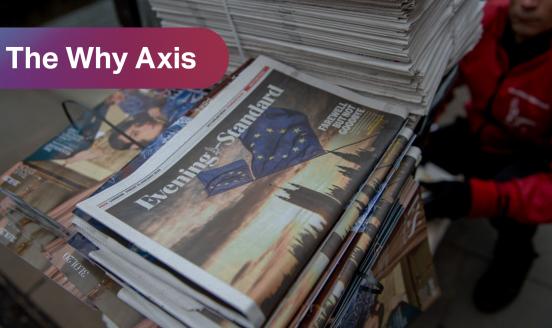Will Governments Overrearch in their Crisis Interventions?
Senior Resident Fellow Nicolas Véron writes in his monthly column about the fear that governments have acquired too much discretionary power in the wake of the financial crisis. Véron argues that the crisis has already led to cases of government outreach, citing several examples, and warns that such overreach is dangerous for long-term economic competitiveness.
For more than two years, financial turmoil has forced an ever wider scope of government intervention in many countries. It is natural that public authorities extend their reach in emergencies, and in many cases there was no other reasonable option. Moreover, in spite of the market rebound, many economies remain disrupted and fragile, making new emergency developments likely, as recent headlines about Dubai or Greece illustrate. Further state expansion thus cannot be ruled out.
How to eventually reverse the interventionist trend – and adopt “exit strategies” from these emergency actions – is a subject of vivid debate among economists and policymakers. The expression “exit strategy” itself has roots in post-Vietnam US military controversies: in the 1980s and 1990s, it became accepted American doctrine that any foreign military engagement should include a plan to exit the theater of operations. A fear of getting stuck in a quagmire in Iraq was a key reason for President George H.W. Bush’s decision in 1991 not to capture Baghdad, even after Saddam Hussein’s comprehensive defeat.
In the current context, discussions about exit strategies have tended to center on macroeconomic aspects, such as fiscal deficits and monetary policy. A no less important question relates to the largely discretionary economic power acquired by governments in their legitimate response to emergencies. One may remember here the old axiom that power always seeks to entrench itself. In ancient Rome, dictators were granted near-unlimited authority to fix crises, but only for six months; the relaxing of this rule coincided with the end of the Republic. No such hardwired term limits exist in most recent financial equivalents. In banking, for example, subordinated debt instruments create an incentive for quick reimbursement, but state guarantees and equity holdings are open-ended.
After intervention has broadly reached its objective, for governments to give back their new clout is more often a matter of choice than necessity. The starting point varies from one country to another, as public attitudes are guided by history and the nature of institutions. In the US, a commitment to free enterprise runs deep, and the public is wary of federal government intervention even when it views the initial action as necessary. In France, where capitalism is less trusted than in any other developed economy according to some polls, there is a latent longing for government initiative. In Russia, private-sector company owners are often loathed, and their expropriation by the state can be applauded by many. Britain currently displays a somewhat unstable combination of long-standing liberalism and public resentment of the financiers whose recklessness caused a major downturn. In China, the state is everywhere, but the value-creating effects of private-sector development are also obvious to all.
Arguably, the crisis has already led to cases of government overreach, abuse or entrenchment. In France, the state seems eager to use it as an opportunity to restore the capacity to steer the economy it enjoyed a generation ago. Examples include the establishment of a ‘Strategic Investment Fund’ which is partly putting the private equity market under state direction, and political intervention to direct asset
sales toward favored companies, such as in the recent pantomime about Areva T&D, an electricity manufacturer that was sold to a French consortium in spite of apparently better bids by GE and Toshiba. In the UK, by recently commenting that the foreign takeover of Cadbury would “face huge opposition from the British government,” Business Minister Peter Mandelson broke a commitment to neutrality in cross-border acquisitions that had previously been scrupulously observed except in clearly strategic cases, such as Gazprom’s rumoured interest in Centrica a few years ago. At the EU level, punitive legislation on private equity and hedge funds is envisaged, despite their obviously marginal role in causing the recent turmoil.
Such overreach is dangerous for future economic competitiveness. Outside of emergencies, the rulebook for normal times has not changed. Growth remains generally best delivered by competition and creative destruction rather than top-down government dictates. Experiments with “authoritarian capitalism,” as in Russia and elsewhere, are no more likely to deliver economic success than before the crisis. Governments need to exercise restraint and not yield to the temptation of abusing their crisis-enhanced powers if they want to preserve their countries’ future prosperity.
Some external factors encourage discipline: bond markets to an extent, and in the European Union, an assertive supranational competition policy. But the key parameters are domestic. In the US, several decades after Vietnam, Iraq and Afghanistan have proved again the importance of exit strategies. Similarly and beyond the debate about macroeconomic exits, the key question becomes how and when state power is reined in, once the causes for its expansion have receded. Answering this question will be a crucial and momentous test of the quality of government in the years to come.
Nicolas Véron is a Senior Fellow at Bruegel, and a Visiting Fellow at the Peterson Institute for International Economics.



